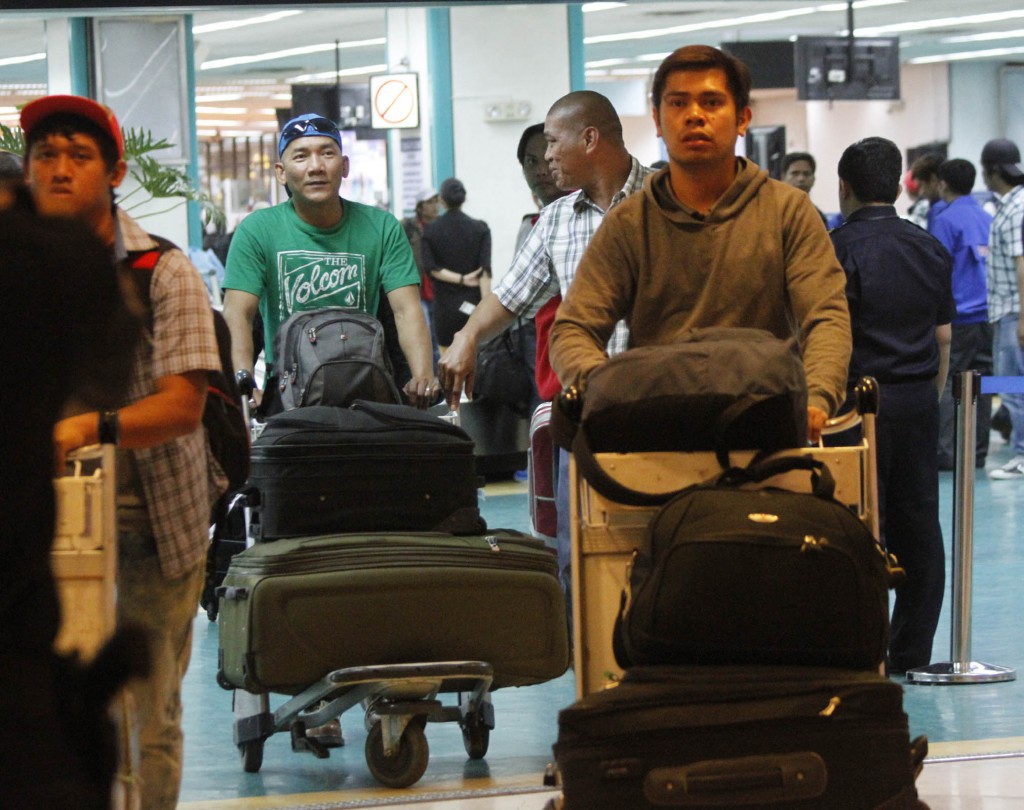Philippine News
Baldoz to OFWs: Shun ‘balik-bayan box’ mentality; venture into entrepreneurship
MANILA — “I have heard so many stories of OFWs that tell of their painful struggle abroad to earn for their families but have forgotten to save and invest for the rainy day. And they come home for good only to realise that they have to start all over again. This is a vicious cycle that OFWs themselves can put to an end by saving and investing their hard-earned incomes.”
This was the message of Labor and Employment Secretary Rosalinda Dimapilis-Baldoz shared by Director Chona Mantilla to some 75 representatives of Public Employment Service Offices, non-government organizations, and local governments who participated in the Workshop on Community Preparedness for Migrant Reintegration and Crisis Management, held at the Hotel Ariana in Bauang, La Union last week.
The workshop, supported by the International Organisation for Migration (IOM), was organised by the National Reintegration Centre for OFWs (NRCO), the DOLE agency co-implementing the National Reintegration Program. It sought to enlist support to national government effort in building the capacities of OFWs for financial literacy and for engaging their participation in local economic development.
In her message, Baldoz urged overseas Filipino workers to reject the so-called ‘balik-bayan’ mentality, and, instead, think of ways on how their hard-earned savings from long years of working abroad can be put to good and profitable use.
“OFWs should not be blinded by the fact that they are earning good money. They should open their eyes to the reality that when they come home, they ought to have a substitute or alternative source of income for their families. That’s what financial literacy is all about,” she said.
On her part, Director Mantilla said most OFWs endure high social costs of migration and work abroad for long years with the hope of increasing their family’s income, or of supporting a growing family, but most often, they total overlook the need to save, or to invest for the future.
“OFWs bear the hard work and, worse, the extremely difficult situations in foreign countries to earn for their families. But many also end up faced with the need to return abroad because they have not saved and invested for their future,” she said.
Ricardo Casco, IOM Mission Coordinator, who was the resource person in the two-day activity, said enabling OFWs toward financial literacy entails changing their behavior.
“Our task is to make OFWs realize that they have an option; that they do not have to spend their lives working abroad with nothing left when they reach their retirement,” Casco said.
He said OFWs should first set aside at least 10 percent to 20 percent of their income every month for their savings, then use the remainder for their expenses.
He also explained that NGOs, in carrying out their task of sharing the burden of making OFWs financially-literate, should scan existing resources and institutions in their areas to build a support network for the various strategies OFWs can use to become financially stable, such as channeling their savings to investments that can spur growth in local economy or by doing the business themselves.
In her message at the event, Regional Director Grace Ursua of the DOLE Regional Office No. 1 commended the NRCO and the IOM for the workshop, saying it was a good opportunity to advocate and establish a broader network of organizations which can ensure stronger protection and welfare promotion for the region’s OFWs.
“Our OFWs bring in remittances to the country while braving unfamiliar conditions in foreign lands. With our converged actions, let us help them fully benefit from their sacrifices,” Director Ursua said.






















